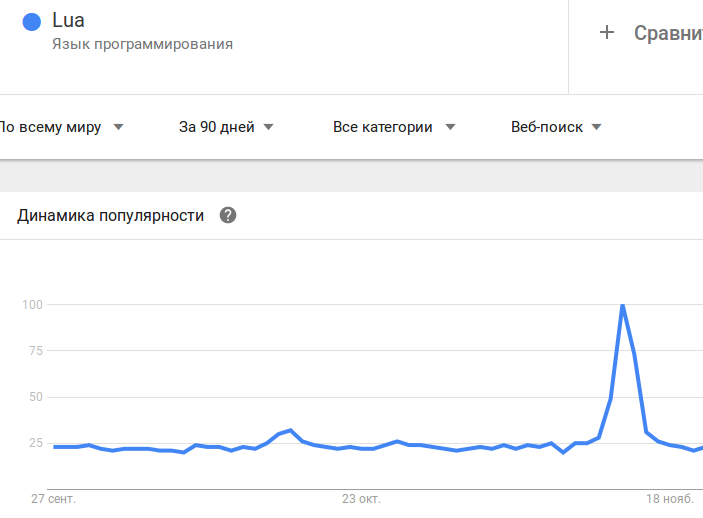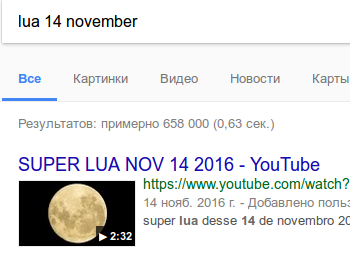Answer the question
In order to leave comments, you need to log in
Google badly distinguishes the topic of the request?

It can be seen from the trends that a query has been selected that concerns only a programming language, and on November 14, a large number of searches for this particular programming language can be observed. 
But if you try to find out what made this language so different that day ... it turns out that this does not matter, but the search engine for some reason considered that in some cases people were looking for YP.
And finally, the question is: by what principle is it determined to which topic the search query belongs? Really on the first page on which the user passed?
Answer the question
In order to leave comments, you need to log in
Determined by behavioral factors. I.e. The user searches for "banana". In the issue, he enters the site and immediately leaves it. Google marks the site as irrelevant to the user. If there are many such users, then the site falls in the search results, as it is considered non-thematic. On the other hand, if most of the users visiting a website page for a particular query have a low bounce rate, then such a website is considered relevant and rises in the search results. And that's just one of many ranking and topic-determining factors.
For that matter, in the search console, when linking a site, you need to select a theme.
And this peak on the chart is not connected with the YP, but with the news boom, as I understand it, related to the moon. This is absolutely normal and cannot be avoided. It just needs to be more precise. The search engine is not Vanga to understand what exactly you are looking for. As an example, the query "Tesla". It is impossible to understand what exactly you need - Nikola Tesla or a Tesla car.
Didn't find what you were looking for?
Ask your questionAsk a Question
731 491 924 answers to any question